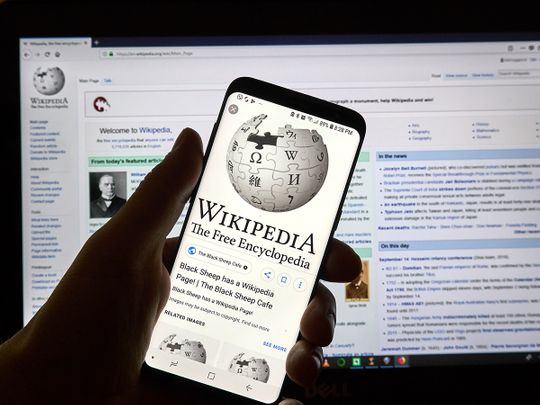
Islamabad: The move by the Pakistani telecom regulator to block Wikipedia services sparked serious criticism from the public who say the action could limit access to the information.
On February 1, Pakistan Telecommunication Authority (PTA) “degraded” Wikipedia in the country for 48 hours for not removing “sacrilegious contents” and warned of fully blocking the website if the online encyclopedia fails to comply with the directions. As of now, on February 5, 6pm local time, the Wikipedia and Wikimedia projects are no longer accessible to users in Pakistan. The regulator said the website had not responded to its requests nor taken down the content in question.
On social media, Pakistanis criticised the blockade that has cut off 230 million people from accessing more than 6 million articles in the English language. Activists said such actions may well be unconstitutional. “There must be no legal avenue to block entire platforms like Wikipedia. This violates Pakistanis’ right to information and education, is disproportionate, and continues a ridiculous cycle of censorship” wrote digital rights activist Usama Khilji. He also questioned the clarity on the “sacrilegious content” and the legal mandate of action in the absence of PTA chairperson.
Barrister Taimur Malik urged the regulator and government to immediately review the decision. Malik said the move was “regressive and harmful for Pakistan’s global image” and showed “a lack of understanding how crowdsourced/edited online information platforms work”. Wikipedia is a free, crowdsourced encyclopedia which means anyone can create and edit Wikipedia entries.
In an interesting analogy, Aatif Awan, the founder of a Pakistan-focused venture fund, said the banning of all of Wikipedia in response to some sacrilegious content in the information age was “similar to shuttering all libraries and bookstores because of one sacrilegious book” in pre-internet times.
Wikimedia urges to restore access
The Wikimedia Foundation, which hosts Wikipedia, said the ban meant that Pakistanis would be denied access “to the largest free knowledge repository”. Wikipedia’s English receives more than 50 million page views per month, it said. The online platform defended its editorial policy, saying “Wikipedia is written by nearly 300,000 volunteer editors” who have designed “robust editorial guidelines that require strict citations and references to verified sources of information,” the statement said. The foundation clarified that it “does not make decisions around what content is included on Wikipedia” and that the content is mined from secondary sources. The platform urged the Pakistan government and PTA to restore access to Wikipedia and Wikimedia projects in the country.
This is not the first time Pakistan has blocked platforms over content concerns. Pakistan has seen creeping censorship on digital platforms. YouTube was blocked in the country from 2012 to 2016 over “objectionable” videos. In recent years, the popular video-sharing app TikTok has also been banned several times over “indecent” and “immoral” content.












